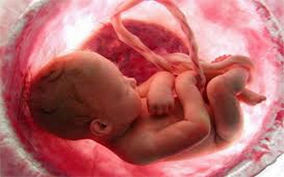
Conception
Conception is a difficult one because this is not strictly a medical or scientific term. Some people believe conception to the be moment at which the egg is fertilised by a sperm, while others prefer to think of it as the moment that an early stage embryo implants in the lining of the uterus and becomes attached to its mother.
